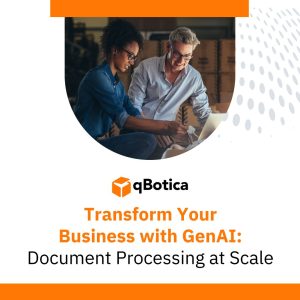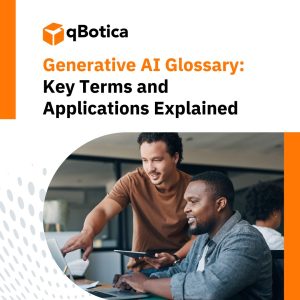AI, a transformative force, is weaving its way into diverse industries. For beginners, though, unraveling its complexities can seem like a daunting task. Fear not! In this blog post, we’re on a mission to demystify AI, offering a beginner-friendly guide into its realm.
Let’s dive into the basics, trace its historical journey, and shine a light on its practical applications in the real world. When you reach the end, the fog around AI will lift, leaving you with a clear view of its potential impact on the modern world.
What is Artificial Intelligence?
Let’s start with the most basic questions: what is artificial intelligence? Well, it’s the magic of machines simulating human intelligence processes, especially within computer systems.
Picture a world where machines excel at problem-solving, understand and translate languages effortlessly, analyze data with finesse, and throw in a dash of making recommendations for good measure.
The tech behind this marvel lies in machine learning and deep learning, propelling software applications to sharpen their skills in predicting outcomes and mining precious insights from data.
While the notion of strong AI, or artificial superintelligence, remains in the realm of theory, the impact of AI is already palpable in real-world applications across industries.
How Artificial Intelligence Works
AI operates by merging extensive datasets with smart, iterative processing algorithms. It delves into the intricacies of data, gleaning insights from patterns and features through intelligent iterations.
Imagine it as a virtual apprentice, tackling tasks akin to human cognitive functions—deciphering speech, mastering games, and discerning patterns. Its learning journey involves devouring colossal data sets, actively seeking patterns to emulate in its decision-making.
AI’s evolution hinges on progressive learning algorithms—letting the data take the reins in programming — finding structure and regularities in data so that algorithms can acquire skills.
This, in turn, equips algorithms with a repertoire of skills. Picture it as machines learning the art of mimicry, gradually morphing into adept performers of human-like tasks.
Applications of Artificial Intelligence
Artificial intelligence (AI) has found diverse applications across various industries, revolutionizing processes and enhancing user experiences. Here are some key areas where AI is making a significant impact:
1. Entertainment
Dive into the transformative waves of AI in the entertainment industry. Experience the magic of workflow automation, personalized content, and cutting-edge marketing.
In gaming, AI sparks creativity and immerses users, while AI-driven technologies revolutionize music production with original composition generation and intelligent vocal synthesis. Additionally, AI is employed for automated subtitle generation, making global content accessible to diverse audiences.
2. Law
Witness the legal sector’s evolution through AI automation. Operations like contract analysis and legal research now unfold seamlessly, enhancing efficiency and accuracy. AI’s predictive analytics empower legal professionals, facilitating informed decision-making and effective data management.
3. Education
Step into the future of education, where AI automates tasks like grading and ensures universal access to learning materials. Teachers find support in grading, classrooms open up universally, and students with diverse needs benefit from a personalized learning experience.
4. Language Translation
AI is widely used for language translation, offering real-time and accurate interpretation of text and speech. Delve into the profound impact on global communication, business interactions, and enhanced accessibility.
5. Image Recognition
AI’s image recognition capabilities are leveraged in various domains, including healthcare, banking, manufacturing, and security. Witness the enhanced analysis and interpretation of visual data, leading to improved diagnostics, enriched customer experiences, and elevated safety measures.
Demystifying AI: Debunking Common Myths
AI, a revolutionary technology captivating both business leaders and enthusiasts, harbors persistent myths that cloud our understanding of its capabilities and consequences. Let’s debunk some of these common misconceptions:
1. AI is impartial
AI’s supposed impartiality crumbles in the face of a stark reality: data bias. The myth dissolves as AI models, mere reflections of historical data, unwittingly become conduits for perpetuating existing biases.
2. AI is complex and expensive
Dispelling the misconception that AI is complex and exorbitant reveals a different truth. Implementing AI has become notably more accessible and affordable in recent years, extending its reach beyond high-tech industries.
3. AI will replace all human jobs
The widespread misconception about AI revolves around the idea that it will completely take over human jobs. Despite the transformative impact of AI and automation on specific industries, it should be recognized as a tool that enhances human abilities rather than a wholesale substitution for human labor.
4. AI is intelligent
Contrary to popular belief, AI lacks true intelligence. AI-powered models operate not on intelligence but on programmed instructions, executing specific tasks based on data inputs.
The Future of Artificial Intelligence
The landscape of artificial intelligence (AI) is on the brink of transformative changes across diverse industries and societal realms. Delve into key insights regarding the future of AI, drawn from the provided sources:
- Revolutionizing Industries – Brace yourself for the imminent AI-driven revolution in industries like healthcare, banking, and transportation. Expect heightened automation and the emergence of novel job roles.
- Shifts in the Job Market – Amid concerns about AI-driven automation, anticipate a wave of new job opportunities. The spotlight shines on data science, machine learning engineering, software development, and user experience (UX) design.
- Societal Metamorphosis – The next five years of AI development promise substantial societal changes, influencing human behavior and potentially automating tasks currently within the human domain.
- Ethical Dimensions – With AI’s pervasive growth, ethical considerations take center stage. Addressing privacy protection, ethical implications, and the societal impact becomes imperative.
- Innovation and Uncertainty – The future of AI is marked by innovation and unpredictability. While AI already permeates daily life, the full extent of its implications and future trajectory remains uncertain.
Conclusion
This exploration into AI serves as a guiding beacon for beginners; dispelling the enigmatic aura surrounding this transformative force. From unraveling the essence of AI to dissecting its intricate workings, the journey delves into practical applications across diverse sectors like entertainment, law, education, language translation, and image recognition.
In the vast expanse of AI’s future lie numerous opportunities for businesses. qBotica, a trailblazer in intelligent automation, stands ready to tailor solutions for diverse industry segments.
Whether it’s integrating Generative AI in investment banking, establishing scalable automation infrastructure, or transforming manufacturing processes, qBotica’s expertise and feature-rich suite empower businesses to navigate the evolving landscape efficiently.
Connect with us today to explore how qBotica can propel your business into the future of automation. Embrace innovation with qBotica and unlock the potential of advanced technologies for your enterprise.




